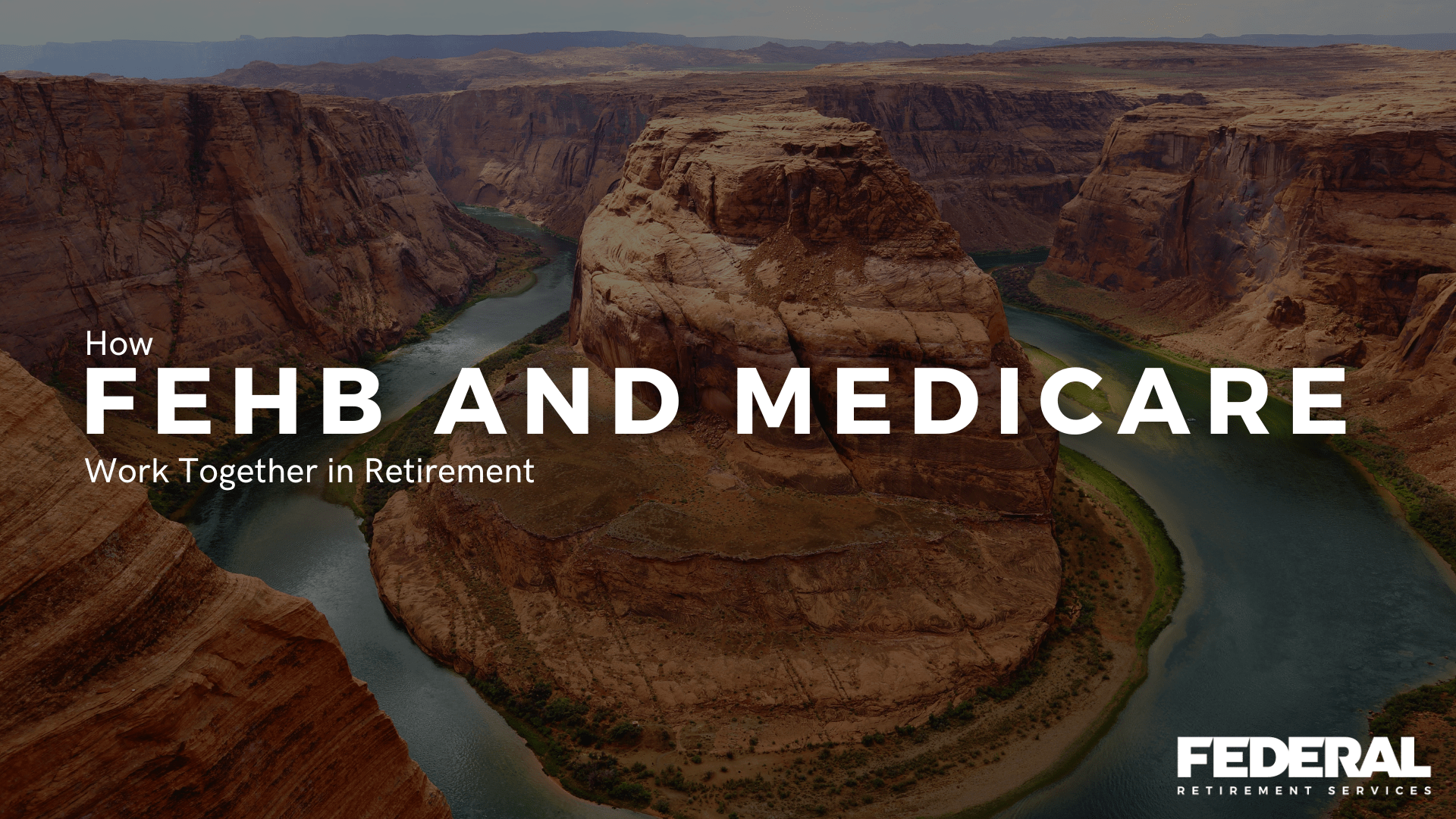
How FEHB and Medicare Work Together During Retirement
When you plan for retirement from federal service, you have several big decisions to make. In addition to planning your income from your FERS pension and TSP distributions, you also need to make sure your healthcare is covered. As a federal retiree, you have two excellent health insurance plans that will work together to cover your needs: FEHB and Medicare.
Both work together, but depending on your age and employment status, one will be your primary and the other your secondary coverage. Here’s what you need to know.
When You’re Under 65: FEHB Coverage During Retirement
Federal Employee Health Benefits (FEHB) is the catchall term for your health insurance as a federal employee. During your employment, you are able to choose from many different healthcare plans within the FEHB program, whether an HMO, PPO, or high-deductible plan with an HSA. As long as you are working and are under the age of 65, your FEHB plan will be your primary—and only—health insurance option.
If you retire before the age of 65, you are allowed to keep your FEHB health insurance as long as you:
- Are eligible for a pension and can collect it right away
- Have been enrolled in an FEHB plan for the five years leading up to retirement (or for your full employment period if you are retiring with less than five years of employment)
For nearly everyone under age 65, it makes sense to maintain FEHB coverage upon retirement, because you are eligible for the same great premiums. Just remember that once you unenroll after retirement, you cannot sign up for FEHB again.
When You’re 65 and Over: Medicare
Once you turn 65, you are also eligible for Medicare. Medicare is the government health insurance program for all senior citizens in the United States, regardless of where they worked, or if they worked at all. Medicare Part A provides some excellent benefits with no premiums, so it’s usually free to sign up for. Therefore, it makes sense for every federal retiree to sign up for Medicare Part A at age 65.
At that point, if you are retired, Medicare becomes your primary health insurer, while your FEHB plan is your secondary insurer. This means that your healthcare costs will first be paid out by Medicare, and if you need any additional coverage, your FEHB plan fills in the gap.
What If I’m Still Working After Age 65?
As long as you’re still employed by the federal government, FEHB will be the primary payer for your medical costs. But you can still sign up for Medicare, which could help fill in a few gaps as the secondary payer—particularly for covering deductibles and copays.
As soon as you retire over age 65, Medicare becomes your primary payer, and your FEHB coverage would cover the rest. This includes some items that aren’t covered by Medicare, such as dental, vision, and prescription drug coverage.
Should I Opt Out of Medicare Part B?
Medicare Part B functions like standard health insurance (as opposed to Part A, which is hospital coverage). Unlike Part A, it is not free—you will have to pay additional premiums to enroll. To enroll or not to enroll is a tricky question for federal retirees. On one hand, your FEHB benefits may provide all the coverage you need, and Part B would just be an extra expense. On the other, if the coverage is similar, it may make sense to compare your FEHB and Medicare Part B premiums to decide which coverage to keep.
Of course, any decision about your health insurance should be made with your personal health and wellness in mind. If you have a chronic illness or a worrying family history of medical issues in old age, you should speak with your doctor about the kinds of care you should expect to need. This is crucial information that will help you decide which medical coverage is right for you when you retire.
Pro Tip: If you want to experiment with Medicare Part B, you can sign up and suspend your FEHB coverage. Just be sure you don’t cancel your FEHB coverage, as you will not be able to get it back.
The Bottom Line
As a federal employee, you will enjoy excellent healthcare coverage during retirement through a one-two punch of Medicare and your FEHB plan. While you don’t have to worry about coverage, you should take a look at your needs to find the best possible combination of the two to keep you healthy and save you money.
While only your doctor can help you decide what care you’re likely to need, we’re here to help you crunch the numbers! As federal retirement benefits professionals, we’ve helped hundreds of federal employees develop a personalized retirement plan that maximizes benefits, minimizes worry, and sets them up for an incredible third act in life. Get in touch today for answers to all your federal retirement questions.




